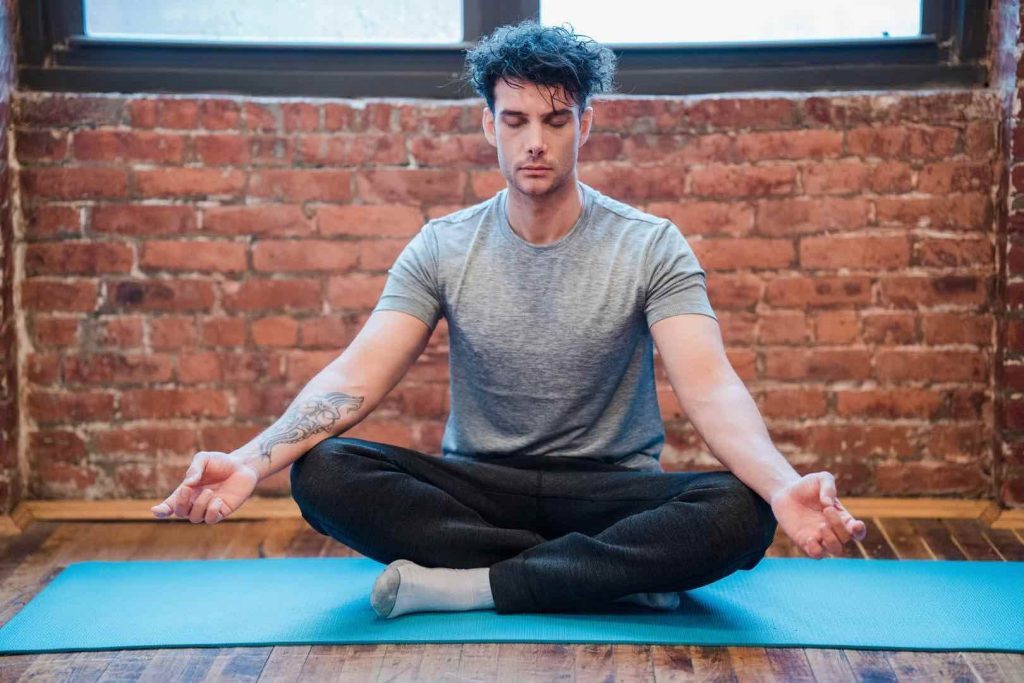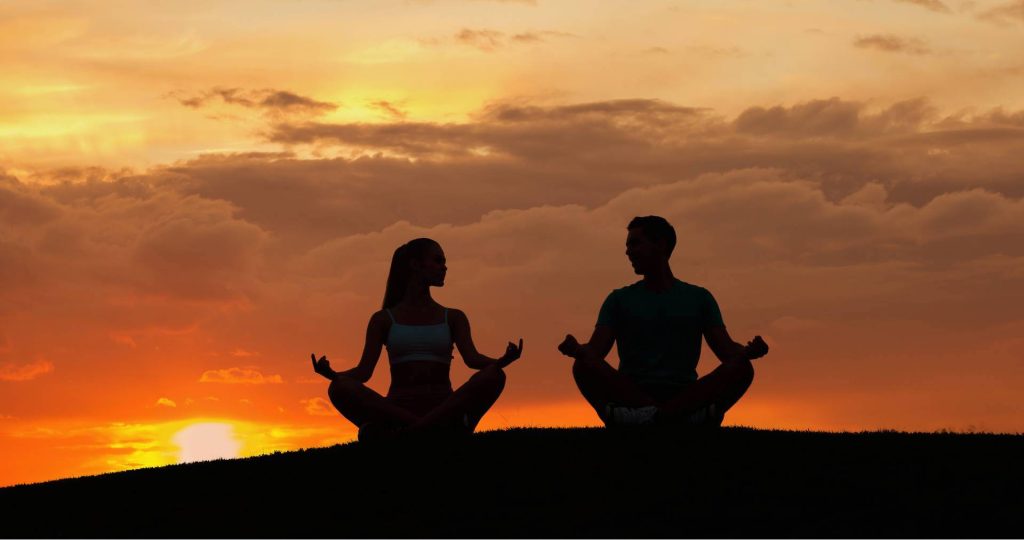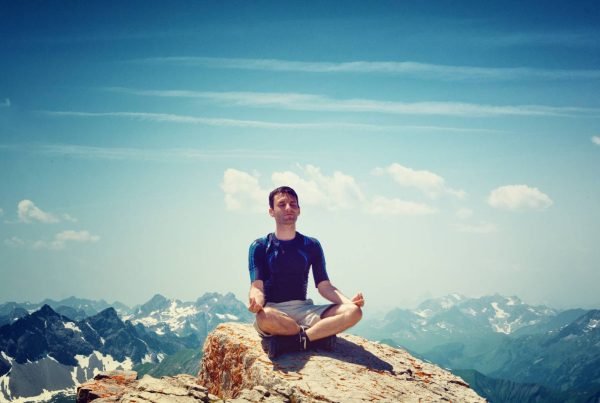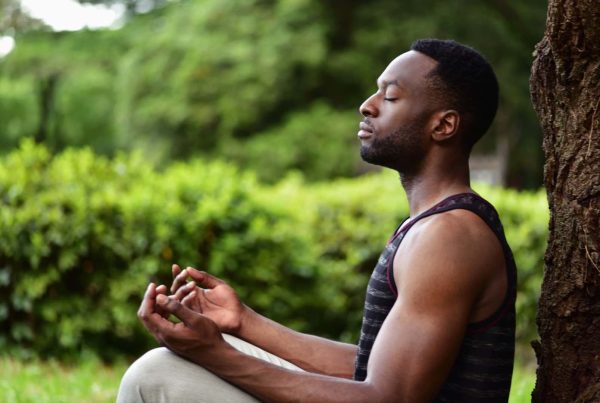Meditation has many benefits for your mental and physical well-being. To name a few, it helps you regulate your emotions, reduce stress, be calmer, and more present. This all sounds appealing, right? I’m willing to bet your interest in these benefits led you here.
Now you’re wondering “How long does meditation take to learn?”. That’s a great question.
The learning time of meditation varies from person to person and depends on varying factors. Including how you approach the practice, the duration of meditations, and how consistently you meditate. Get these aspects correct and you can learn the basics in as little as 7 days.
In this post, I’ll cover the all above. As well as give you some solid tips and advice to get started in your meditation journey.
Let’s dive in.
How Long Does Meditation Take to Learn?

How long it takes to meditate depends on the person and how they approach the practice. We all have different traits and personalities, which can affect people’s meditation attitude, and how well they respond to it. What’s also important is the duration you meditate and the frequency.
I’ll be honest, meditation isn’t easy. In fact, it’s difficult. Sitting in a silent room, confronted with your own mind, thoughts, feelings, and emotions can be challenging. There are days when I find it tough, especially when I’m tired or feeling overwhelmed.
What kind of a person are you?
A naturally calm, easy-going, and relaxed individual may grasp meditation faster. Whilst an anxious overthinker with a busy mind might require more time to adapt to the practice.
Sadly, this can put them off the practice. As they might feel their efforts are hopeless or not going anywhere. That’s why it’s important to approach meditation correctly.
Let’s look at that next, before we move on to the other important aspects.
Oh, and don’t worry if you’re an overthinker. I am too. There are many people who struggle with a restless mind. That’s why learning practices like mindfulness and meditation are so vital to our well-being.
How Should You Approach Meditation?
Developing the right meditation attitude before you even start the practice is vital. Why? Because as I said earlier, meditation is challenging. If you don’t approach it with the right mindset, then you’ll end up quitting too early.
Allow me to give you some useful guidelines to follow:
- Don’t have expectations: If you do, then you’ll likely feel disappointed. Meditation shouldn’t have rigid goals. Also, don’t get caught up in the misconception that you should be able to empty your mind of thought. That’s not possible. Meditation is about learning to observe your thoughts.
- Go with the flow: Meditation is a learning experience. An opportunity to cultivate self-awareness by gathering insights about your mind and body. Feel, listen, sense, and pay attention to what arises. Be adaptable and practice acceptance.
- Be curious: “What is that sensation in my body?”. “How far away is that sound in the distance?”. Be intrigued about what comes into your awareness. Try not to think everything through, instead experience it.
- Don’t force or rush anything: Meditation should unfold naturally. Let it be as it is. You may feel stressed and anxious now, but it will pass in its own time.
- Be patient and kind with yourself: Meditation takes time to learn but it’s worth it. When difficulties arise, be gentle and kind towards yourself. Frustrations are common so don’t take them personally. Even experienced meditators face obstacles.
Approaching meditation with this understanding and openness puts you in a good starting position. I wish I knew this advice when I began my own mindfulness journey. Be sure to write these points down or bookmark this page.
One final tip is to keep a notepad handy. After each session write down how your meditation went. Include the challenges, obstacles, what you encountered, learned, gained, and so on.
Let’s now look at how long you should meditate.
“Meditation is not about stopping thoughts, but recognizing that we are more than our thoughts and our feelings.”
— Dan Harris
How Long Should a Beginner Meditate For?

For beginners, it’s best to start meditating for short periods of time. 5-10 minutes is a convenient starting point. That way you can get used to the feeling of the practice. After all, it can feel odd at first. How often do you actually sit still in a quiet place?
In fact, during one study, the participants would rather give themselves electric shocks, than sit still and think. How crazy is that?
Being still, quiet, and doing nothing is abnormal in your fast-paced society. Where we are constantly expected to work, strive, and keep busy. On top of that, we have apps, adverts, and social media all grasping at our attention.
So, if you find meditation difficult at first, give yourself a break, please!
Start out small and gauge how you feel. Then either decrease or increase the time that you meditate. Do this gradually. Especially if you want to build up to longer meditation sessions.
Oh, and if you’re unsure about whether you should use a timer, or follow a guide, then I can help. Check out the articles below to help you decide.
How Often Should You Meditate?
You should meditate daily. Why? Because like any healthy habit you want to develop, you need to be consistent. It’s easy to fall out of the practice but then you lose your progress.
Meditation is brain training for your mind.
It’s a skill that you can learn, develop, and improve. Don’t worry if you miss a day here and there. That’s ok but try your best to stick to it. Let it become a habit that you look forward to. It won’t feel that way at first, but over time it will.
Think of it as “me time”. An opportunity to learn, be present, and still. A chance to become more mindful and build a stronger body and mind, with greater emotional resilience.
Sounds exciting, right?
What are the Benefits of Meditation?

There are many benefits of meditation which can help you to improve your life. Let’s look at some of the most discussed ones:
- Stress and anxiety reduction: Meditating empowers you to calm your body and mind. This happens because during meditation you reduce stress hormones such as cortisol. Curious to know more about how this works? read my post How Meditation Calms Down Your Nervous System.
- Improved focus and concentration: As you meditate, you use an anchor such as your breathing. When thinking arises, you notice it, then go back to paying attention to your breath. As you do this, you train and strengthen your muscle of attention.
- Increased self-awareness: Once you’re aware of something you can take positive action to change it. Meditation teaches you to be aware of what goes on within your mind and body.
- Enhanced emotion well-being and resilience: Meditation teaches you to regulate your emotions better. Allowing you to have greater resilience, as you reduce the chance of negative feelings overpowering you.
- More stillness and presence: Nowadays we are human doings, not human beings. We get so busy remembering, thinking, and planning that we never take a moment to be still and present. Meditation gives you that power back.
- These are a few examples of how you can transformative meditation can be for you. I can attest to these benefits. Before I began meditating, I used to be more impulsive, reactive, and suffer from anxiety. Now I find I’m calmer and more at peace.
“This all sounds great Chris, but WHEN can I see the results?”.
Hold your horses, I’m getting to that.
“Meditation is like a gym in which you develop the powerful mental muscles of calm and insight.”
– Ajahn Brahm
How Long Do You Need to Meditate to See Results?

The results of meditation vary from person to person. However, expect to notice positive benefits within weeks of learning the practice. But this also depends on if you know what you’re looking for or not.
For example, imagine you tried to meditate, got frustrated, and then gave up. It may have felt like a total waste of time, but it wasn’t. Think about it. You already gained valuable insights. “Such as what Chris?”.
You know now that you may have a short attention span. Or perhaps you just don’t like the silence because it’s scary having to face your thoughts and feelings. Or it may be that underneath that agitation, there is anxiety and stress. Perhaps related to something else.
See what I mean?
This is all useful information.
You can now proceed with your day knowing what’s going on within your body. You’ve brought awareness to that agitation, anxiety, and stress. This means you’ll be less likely to fall into unconsciousness or react impulsively in traffic, at work, or with your partner.
So, you may not see the longer-term “results” until some weeks, but those valuable insights can happen immediately. Only if you adopt the right attitude, be open, and pay attention.
Meditation is an Investment in Yourself
We live in a world of instant gratification. We can get what we want when we want. Entertainment, food, pleasure, and stimulation are all available at the click of a button these days.
This is terrible for our minds.
We’ve lost our attention span, focus, and willingness to take our time learning skills. Particularly ones that take months or years to develop. But “nothing worth doing is ever easy” and that’s true with meditation.
It takes time to learn but meditation is an investment in yourself.
It’s a tool you can use to enhance your well-being. Over time you’ll cultivate more self-awareness, and enhance your concentration, productivity, and emotional resilience.
Take back the reins of mind and live a better life.
What’s holding you back?
I hope you found this post helpful. If you have any questions or comments, I’d love to hear them below.
Take care of yourselves,
Chris from Mindful Way to Be



